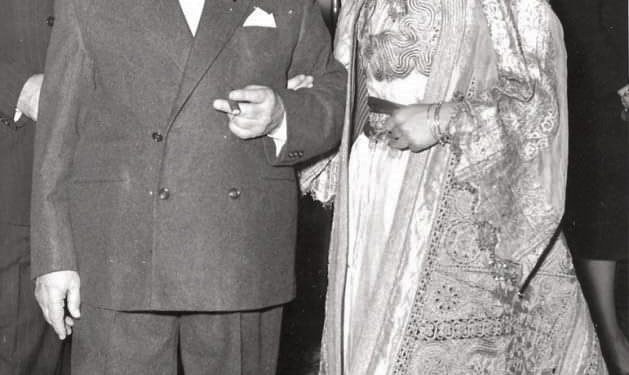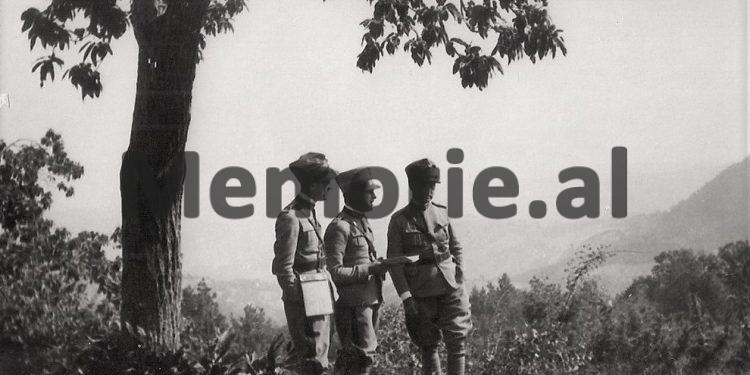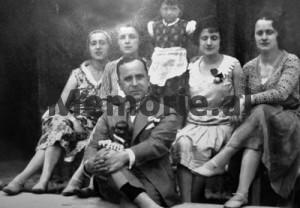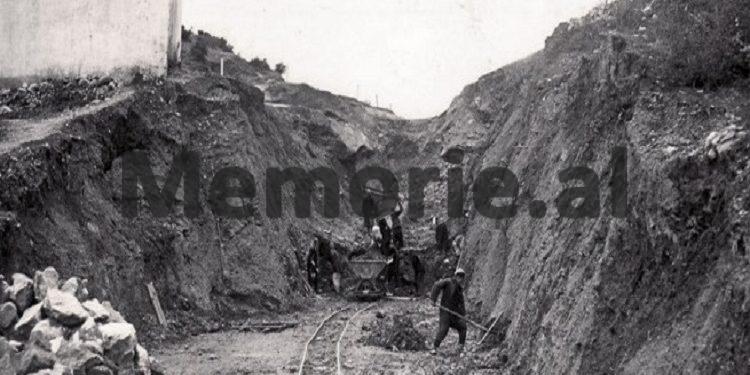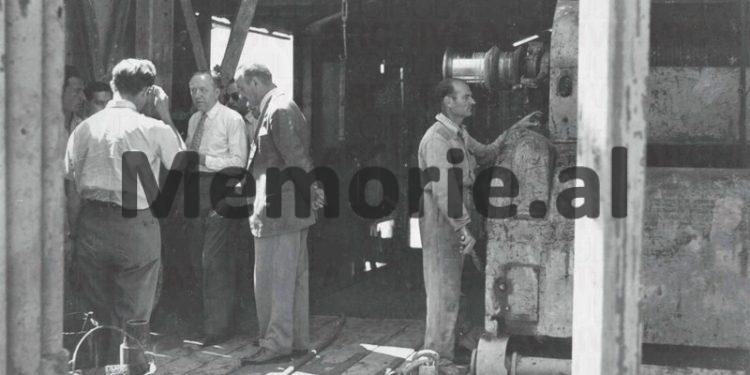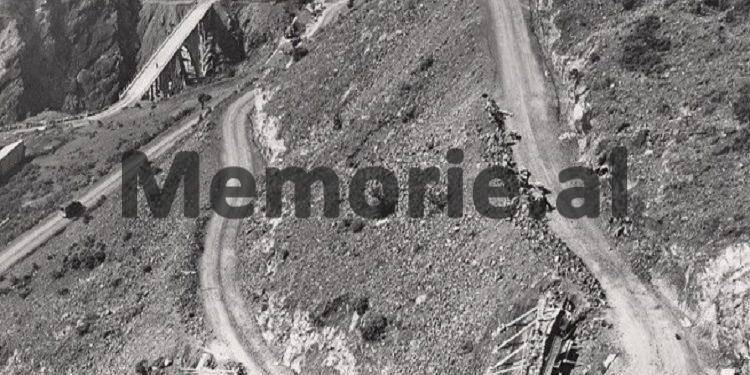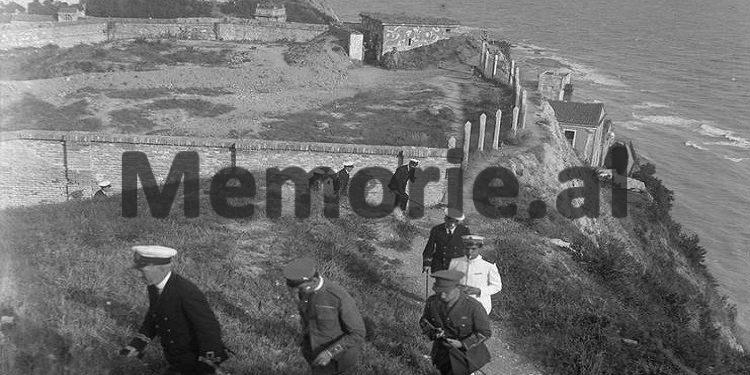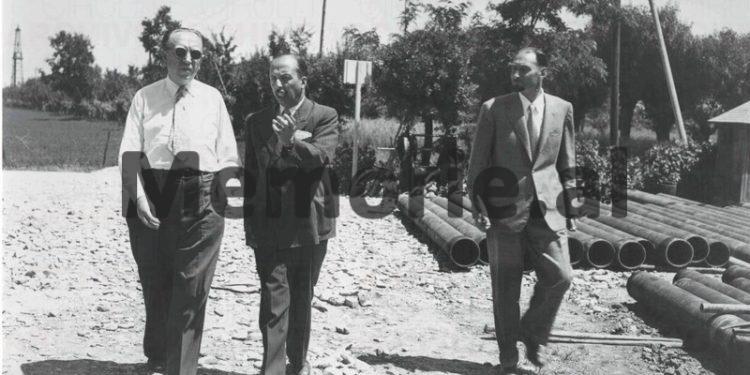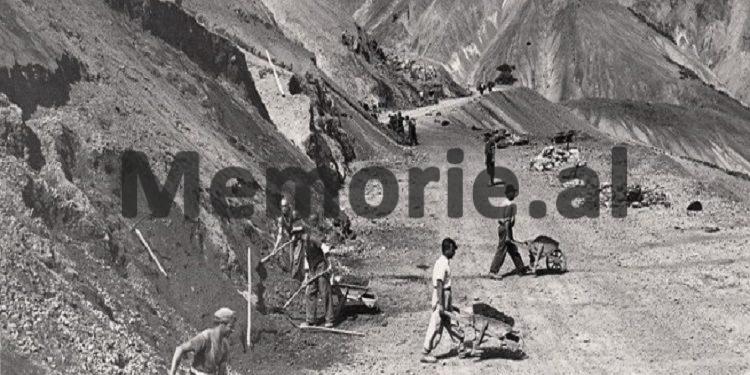By Sven Aurén
Translated by Adil N. Bicaku
Part seventeen
ORIENTI EUROPE
Land of Albania! Let me bend my eyes
On thee, thou rugged nurse of savage men.
Lord Byron.
In the book “Orient of Europe”, the author of the work is the Swede Sven Aurén. They are impressions of traveling from Albania from the ‘30s. His direct experiences without any retouching.
In a word, the translation of the book will bring to the Albanian reader, the original value of knowing that story that we have not known and we continue to know it, and now distorted by the interests of the moment.
Now a little about what these lines address to you: My name is Adil Bicaku. I have worked and lived for over 50 years in Sweden, without detaching for a moment, the thought and feeling from our Albania.
I am now retired and living with my wife and children, here in Stockholm. Having been for a long time, from the evolution of the Albanian language, which naturally happened during these decades, I am aware of the difficulties, not small, that I will face, to give the Albanian reader, the experiences of the original.
Therefore, I would be very grateful if we could find a practical way of cooperation together, to translate this book with multifaceted values.
Morally, I would feel very relieved, paying off part of the debt that all of us Albanians owe to our Albania, especially in these times that continue to be so turbulent.
With much respect
Adil Biçaku
Continued from the previous issue
No! Eqrem Vlora answered, therefore, to my non-discreet question whether Italian loans have turned Albania into a convinced fascist state. What was he supposed to answer? There are, of course, moments when even such an honest man, like Vlora, must allow the truth to be subjected to lofty patriotic goals.
But he should have said: yes! Although against the will, despite his opposition, Albania is thus on a slippery slope, owned by Mussolini. But it should also be noted, that Rome, does not have an easy game with this old warlike people. Fascist diplomats have had and always have nervous moments, because of Albania, and perhaps a ray of hope can be seen in this relationship. Albania’s great tragedy, in fact, lies in its loneliness. There is no state that cares about him in such a way that he can return freely, from the clutches of Italian blackmail. And yet, many states, because of their security, should have every reason to be interested, in a more active way.
Italy seems to be behaving as it pleases, in this important part of the Balkans. Warning words have been raised by prominent connoisseurs of modern foreign policy, at least so far but in vain. Italy makes those mountains invincible, even more invincible, through fortifications and positions, through strategic roads, prepares an Italian march, through propaganda, to influence the atmosphere of the people, as much as it wants. Europe stays calm and watches. Questions about loans are rejected with a bad mockery, even though Albania, with all its pleasure, wants nothing more than to break away from the interest-bearer, on the other side of the Adriatic. Europe will soon have reason to regret this policy.
My first encounter with this Italian Albania, happened right here in “Kursal”. I was introduced to the editor of the Italian-Albanian newspaper, one of the great words and beautiful phrases of the little knight, who could not be comforted enough, who was forced to spend his life in Tirana, when his father and mother, did pleasant life and life of fascist faith in beautiful Rome. His newspaper was printed in Brindisi, in both Albanian and Italian, and transported by postal plane to Tirana. She had an important propaganda obligation to fulfill, but it did not escape me to find that the tone in her columns was quite calm. The fascist propaganda machine must not write too harshly when the written word is treated. Then it is better to build roads and fortifications, under the pretext of decoration.
The Italian editor rubbed his oily hair and said:
-Albania has borrowed a large amount of money. The result has not been lacking: the friendship between the brotherly peoples of Italy and Albania is deep and sincere.
Friendship is the same as between the oppressor and the victim. The Italian issue worries all the people of Albania and is the most dangerous obstacle for King Zog.
The Italian interest in the Albanian coasts dates back to the time of the expansionist goals of the Roman Empire and has continued uninterruptedly, to maintain the same attitude until today. When Albania’s independence saw the light of day after the end of World War II, Italy foresaw a new chance. This new state needed money, but could not find credit. Rome quickly decided to give him the first loan. In 1925, a bank-loan agreement was signed. A National Bank was established, in which 51 per cent of the shares were held by Credito-Italiano and its subsidiary, and in 1926, it was given a depreciation loan of 50 million gold francs for construction purposes, which were more closely controlled from it, for special reasons of the formation of the joint stock company, SVEA (Societa per lo Sviluppo Economico dell´Albania).
But Rome was naturally interested, lest this be done without counter results. A large number of troops and engineers entered to lead the construction of important roads of a strategic nature, according to secret orders given by the war ministry in Rome. An Italian military commission took over the army training. But in fact 50 million is not a big deal at all, when it comes to a job of this size, what it was about. In 1931, the money ran out and Albania needed new loans. Rome was ready again, this time with 100 million gold francs, which would be paid, from 10 million a year. But to make the debtor more cooperative, Italy changed the deal.
Instead of the 10 million each year, the money was given on a case-by-case basis, something that actually provided a wider range of options, in terms of interest rates and amortization plans and, above all, better control over the use of money. . And this control suffers in the best use. Hyper-modern fortifications were erected across the mountains, magnificent bridges connected important points, the road network was extended mile after mile. Very little was invested in agriculture and industry, as the people expected. It must be understood what an extremely difficult position the Albanian government was in.
The people can neither and will not understand why military construction should take precedence over economic and cultural ones. King Zog, for his part, must implement the terms of the loan, the secret ones and the official ones. The villager sees the elegant Italian traffic planes, which fly between Tirana and Shkodra and thinks, if it would not be better without planes, but with lower taxes. Citizens look at the elegant Italian officers and wonder why neutral military experts have not come to take over the army training. For King Zog it is necessary to have it well with all parties. In all circumstances he has, therefore, the advantage of being able to testify to the cultural and economic rise, which without a doubt has occurred though, this rise, would be greater with, as e.g. a less expensive army.
But it is quite natural that freedom-loving Albania is not satisfied with this forced Italian friendship. Hatred for foreigners is growing more and more. To some extent, they should also start listening to Yugoslav voices and investigate whether, with the help of this power, I can escape Italian influence. Efforts are also made with the opportunities that are available, to bring out various difficulties to the Italians. Unexpectedly, a decree was announced, according to which the Albanian state took over all private schools, including the Italian ones, which naturally formed a wonderful point of support for fascist propaganda.
King Zog, who is undoubtedly a strong man of extraordinary caliber, could even act in order for the Italian military commission to leave the country. But libertarianism deals with unimportant external things, in order to appease the general public. The reality is that Italy’s position is the same or in recent years, it has been further strengthened. What can King Bird do? Most of the incomparable exports from Albania are consumed by Italy. Other large European countries are always uninterested in any lending.
Under these conditions, the decisive stay of Albania, during the much talked about visit of the Italian fleet, to Durrës on June 1, 1934, should arouse devotion, respect and admiration. A visit of the foreign fleet, according to the international label must be announced in time. On the morning of June 1, the Italian minister asked for an audience with King Zog and announced that a large part of the Italian fleet would pay a visit to Durrës within 20 minutes. At the same time, the minister took the opportunity to present some demands: Italian schools should be reopened, the military commission should be allowed to return, the Balkan pact should not be supported, and the air traffic concession should be extended. The minister’s threats were not empty words. Half an hour later, a phone call came from Durrës: a large number of large military cruise ships and cruise ships had dropped their anchors on the pier. The city was gripping with panic psychosis.
It is not easy to say what King Zog and his advisers thought in those moments. But what they did was a great miracle. It is as if the soul of Skanderbeg was resurrected again, as if the desperate resistance of the national hero, against a multiple Turkish superpower, is presented in an encouraging vision. The Minister received a categorical answer, ‘no’, to his requests. The Chief of Coast Guard in Durrës, received a quick order: any attempt to land on the ground, you will respond with opposition to weapons! And while the large military cruisers, there at anchor have directed the powerful cannons towards the city, the commander of Durrës, at the head of a corps, heads for the port and took a post on the scaffolding.
There was, as I said, that fleet, which an English naval expert described as the most dangerous and modern in Europe. The commander, of course, should have been quite clear that if the rifle started, any resistance was in vain. But this is once so, that an Albanian never surrenders voluntarily, the superpower of the enemy, is never so great for him. From the moral point of view, the commander had in his hand the honor of his homeland and for this honor, he also thought of fighting, no matter how hopeless the war seemed. The steamers launched a number of boats at sea and the sailors’ rifles shone in the strong June sun. The first boat was moored at the pier. It was a historic minute.
The commander calls:
-I have the government order! Stop or I will shoot!
The defender of Durrës and the Italian navy officer, who had the command of the first boat, stared at each other. The officer then ordered them to return to the warship and the other boats, following the example of the former. The instructions were not so clear. The Admiral had not foreseen the bravery of the commander, when he had ordered a peaceful march, but indicative respect through the city streets. The Admiral is deeply thought out and apparently certainly sent a radiogram to Rome.
The landing was then canceled. The threatening visit of the fleet caused a little sensation in the world press and Italy was criticized with harsh and bitter words, for its arrogant behavior. Il Duçe, was forced to make an official statement. I believed that really, we were so good friends with the Albanians, that we could make a few concessions in the formalities, said the dictator, but did not reap any success with those words. It was Albania that laughed at this. And the anti-Italian atmosphere, got livelier.
The result of the determination of Albania’s behavior, in the face of the cannons of the Italian warships, became a considerable mitigation of the demands, presented through the minister in Tirana. As far as schools are concerned, King Zog accepted a compromise: the Italian schools would not be reopened, but the Italian language, to be introduced compulsorily in all Albanian schools. This was in fact all that was achieved and in Rome, cursed with a great commotion, over this Albanian insistence.
But even though Mussolini, this time considering the most powerful enemies, did not dare to act fully and undertake a regular occupation, the event shed a ruthless light on the dictator’s attitude towards Albania and on Italian rights in this place. He refers to the needs of Italian expansion, this strange expansion which, as is well known, stands above all moral laws. The mystical word expansion justifies everything, according to the Italian point of view.
Did not the Albanians themselves calculate that their country could feed four times as many inhabitants? This, in turn, offers excellent opportunities for an influx of Italian immigrants in the future. This is of great importance, due to its strategic position. Italy can take Albania completely into its own hands, thus at the same time it has formed a land border, extremely valuable towards Yugoslavia. And so Albania is in great need of civilization. From Italian civilization, note be.
What is meant by modern Italian civilization, we have learned all these days? Albanians are in many ways, much higher as a people than the Italians, but no less always emphasize the “need for civilization.” You can say that there is no nation that feels so morally indignant over what the Abyssinian people walk barefoot like Italy, nor is there any nation that is so shocked, to that degree on cases of blood feuds or incidents of futile Albanian revolts.
Only with the help of Italy, you can make people from Albanians. And that this view constitutes a very important part of fascist propaganda, so in conversation with the Italians, to present a very special picture, for the Albanian people: a low barbaric people with weak character, but thanks to fascist civilization and the effectiveness of redemption of the world, will one day turn them into hardworking and useful people. It is for this reason and only for this reason, that Italy is ready to serve with money and advice, in such a generous way.
Say then, that there are no cases when civilization can be destroyed more barbarically than barbarians!
Recent events show that Albania has not been able to reduce its Italian influence decisively. News from Greece, say that the Albanian government has given permission to Rome, to strengthen some coastal provinces, near Vlora and Saranda, very important fortifications, where the strait between the island of Sazan, which is Italian and Albanian land, is the key to the sea Adriatic. With this strait in his hand, Il Duçe “taps” the Adriatic completely, at any moment he wants. Indeed, the Greek information regarding the Albanian situation should be taken very carefully, but there is no smoke when there is no fire. Albania’s refusal to support sanctions against Italy is another example. How could he not refuse? But now, if not before, the Italians should be really satisfied with the Albanian olives and the Albanian goat cheese.
Italian politics therefore poses a great danger to the position of King Zog. The Albanian monarch really does not have it easy. Inside the country, the highlanders compete for power, while on the other side of the Adriatic, blackmail with the bag of money. Hatred for Italy is growing stronger every day, and Yugoslav sympathizers are gaining ground. The act of balance, which the Albanian Monarch has maintained and maintains, is an impressive number of virtuoso arts. This shows that King Zog justifies a characteristic which has often fallen to him: the brightest head within modern Balkan politics.
Not a few he demonstrates his resilient policy, within the highly censored press. When Albania now finally received 3 million from the big 10-million loans, the inhabitants of Tirana were confronted with an article in “Besa”, which certainly made their lips twitch. It is likely that King Zog himself laughed.
“Besa” wrote:
“Completely spontaneously and as a sign of the deep friendship that reigns between our two countries, the Italian government has had the kindness to make available to our country 3 million gold francs.
M.T. On behalf of the people, King Zog sent a letter to the Italian Prime Minister, where he thanked him for the generous help of Italy and underlined the absolute determination of friendly relations and mutual interest that unites the people of Albania with the Italian one “. Memorie.al




